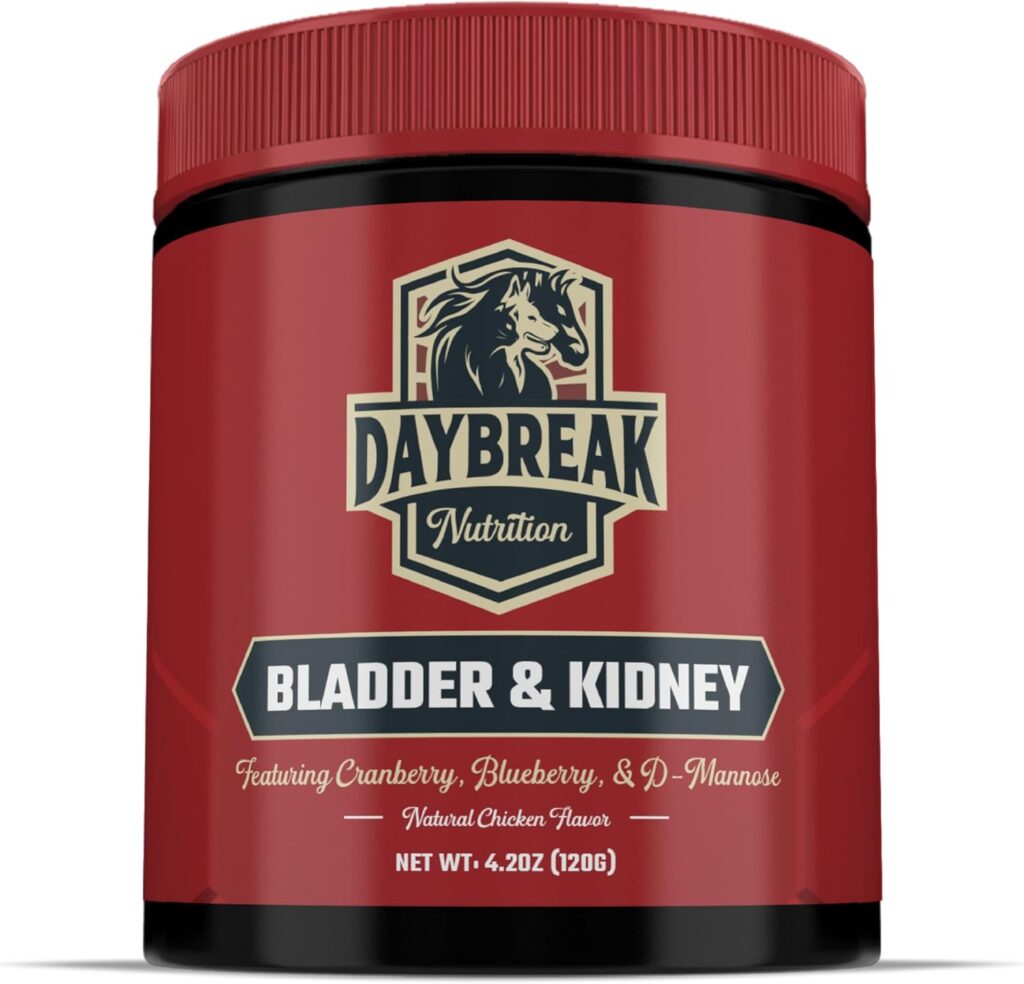Cystitis in dogs is an inflammation of the bladder that can lead to discomfort, frequent urination, blood in the urine, and other troubling symptoms.
This condition can occur for various reasons, including infections, bladder stones, and underlying health issues.
While cystitis can be painful for your dog, understanding what causes it and how to manage it is crucial for providing relief and improving your dog’s overall health.
In this blog, we’ll explore five ways to support your dog with cystitis, starting with the causes of dog cystitis.
Let’s dive in!
What Causes Dog Cystitis?
Dog cystitis can be caused by a variety of factors, including:
- Urinary Tract Infections (UTIs): Bacterial infections are one of the most common causes of cystitis in dogs.
- Bladder Stones or Crystals: These can irritate the bladder lining, leading to inflammation and infection.
- Stress: Emotional stress can contribute to cystitis in dogs, causing flare-ups of symptoms.
- Underlying Health Conditions: Diseases such as diabetes or kidney disease can make dogs more susceptible to cystitis.
- Dietary Factors: Poor diet or food sensitivities can also contribute to bladder issues in dogs.
Here are five ways you can help support your dog’s bladder health and manage cystitis.
5 Ways to Support Dog Cystitis
1. Use a Bladder and Kidney Supplement for Dogs
A bladder and kidney supplement specifically formulated for dogs can provide essential support for their urinary health.
These supplements often contain ingredients like cranberry extract, d-mannose, and natural herbs that help reduce bladder inflammation, prevent infections, and support overall kidney function.
By supporting healthy bladder function, these supplements can help ease cystitis symptoms, reduce the frequency of flare-ups, and improve your dog’s comfort.
Out of all of the supplements my dog has tried, Daybreak’s new Bladder & Kidney is his personal favorite.
Daybreak’s Bladder & Kidney is an excellent choice for managing dog cystitis, thanks to its powerful blend of cranberry extract, blueberry powder, and D-Mannose.
These premium ingredients help support urinary tract health, reduce inflammation, and promote bladder control, making it ideal for dogs with urinary issues.
By boosting urinary tract function, this supplement provides effective support for dogs suffering from cystitis and frequent urination.
Simply follow the directions on the back and you’re good to go!
2. Increase Water Intake
Dehydration can exacerbate cystitis and lead to more concentrated urine, which irritates the bladder.
Make sure your dog has access to fresh, clean water at all times, as staying hydrated helps dilute their urine and flush out toxins.
If your dog isn’t drinking enough water, consider offering wet food, which contains more moisture than dry kibble.
Some dogs also prefer running water, so a pet water fountain may encourage them to drink more.
3. Maintain a Healthy Diet
A balanced, high-quality diet is essential for managing cystitis and promoting urinary health.
Some dogs may benefit from a special diet designed to support urinary tract health and reduce the risk of bladder stones and infections.
Look for foods that contain appropriate levels of minerals, are easy to digest, and avoid ingredients that may irritate the bladder.
You can also consider adding supplements such as omega-3 fatty acids to help reduce inflammation and support overall bladder health.
4. Regular Bathroom Breaks
Frequent urination is essential for preventing the buildup of bacteria in the bladder and promoting overall urinary health.
Make sure your dog is allowed regular bathroom breaks throughout the day, especially if they are indoors most of the time.
Holding urine for extended periods can lead to bacterial growth and irritation of the bladder.
Regular trips outside help ensure that your dog’s urinary tract stays clear and functional, reducing the risk of infections and cystitis.
5. Manage Stress and Anxiety
Stress is known to trigger and worsen cystitis symptoms in dogs.
If your dog is experiencing anxiety or stress, it may exacerbate their urinary issues and lead to flare-ups of cystitis. Reducing stress through calming products like pheromone diffusers or anxiety wraps can help alleviate symptoms.
Additionally, providing a consistent routine, ensuring a quiet and comfortable environment, and offering plenty of physical and mental stimulation can help reduce stress and improve your dog’s overall well-being.
Supporting Dog Cystitis
Cystitis in dogs is a common yet manageable condition that requires attention and care.
By using a bladder and kidney supplement, encouraging hydration, maintaining a balanced diet, offering regular bathroom breaks, and managing stress, you can help ease your dog’s cystitis symptoms and support their urinary health.
If your dog’s cystitis symptoms persist or worsen, it’s important to consult with your veterinarian to determine the best course of action and rule out any underlying health issues.
With the right care, you can improve your dog’s comfort and quality of life while helping them maintain a healthy urinary system.
Thank you for reading!
Affiliate Disclosure
Some of the links on this site are affiliate links. This means that if you click on the link and purchase the item, we may receive an affiliate commission at no extra cost to you. I only recommend products or services that I believe will add value to my readers, however some (not all) do pay us to be on this blog. Your support and theirs helps keep this blog running, and I genuinely appreciate it.
Medical Disclaimer
The information provided on this website is for educational purposes only and is not intended as medical advice. The content shared here is not written by a licensed veterinarian, and it should not be used as a substitute for professional veterinary diagnosis, treatment, or advice. Always consult with your veterinarian or other qualified pet healthcare provider before starting any new treatment or making changes to your pet’s health regimen.

